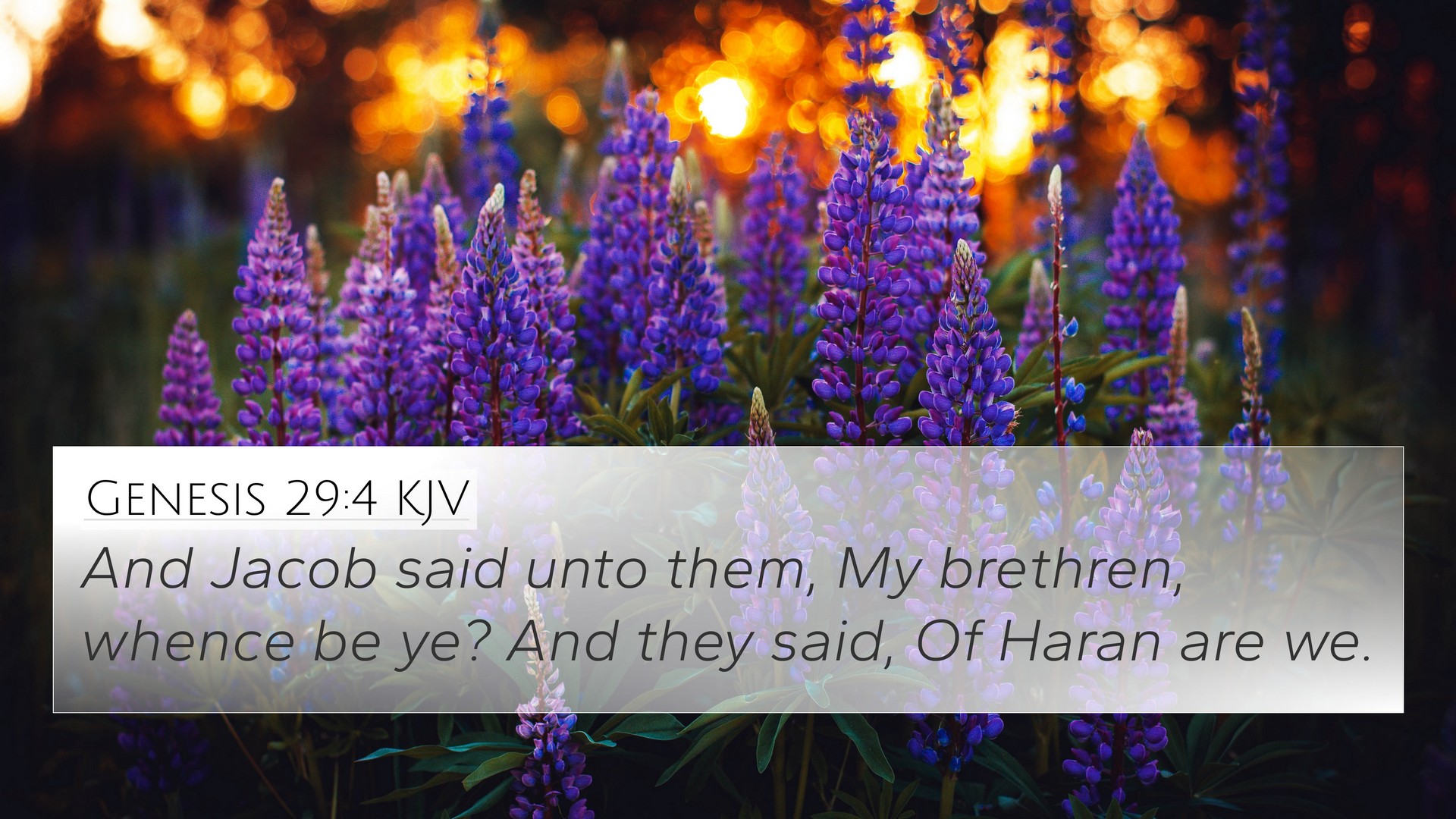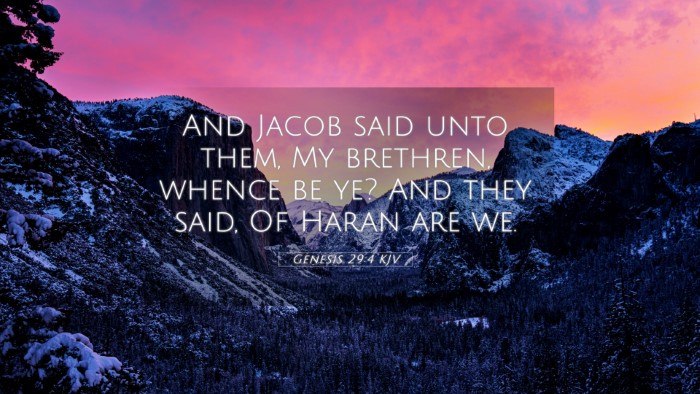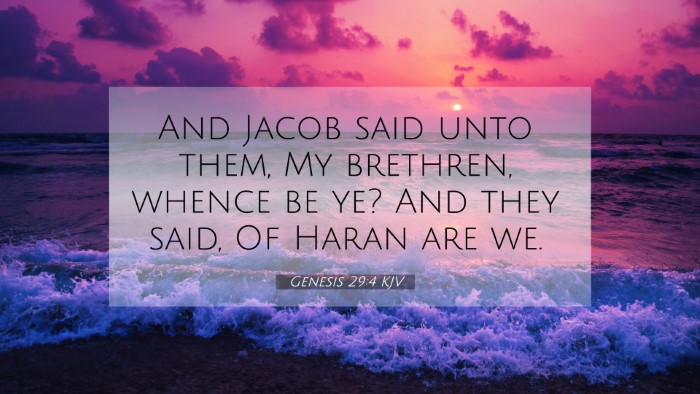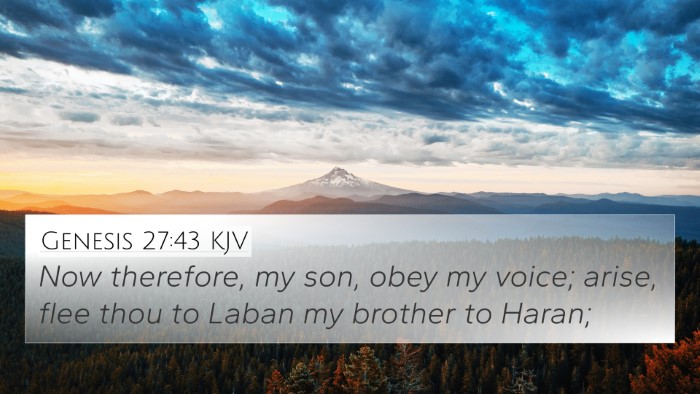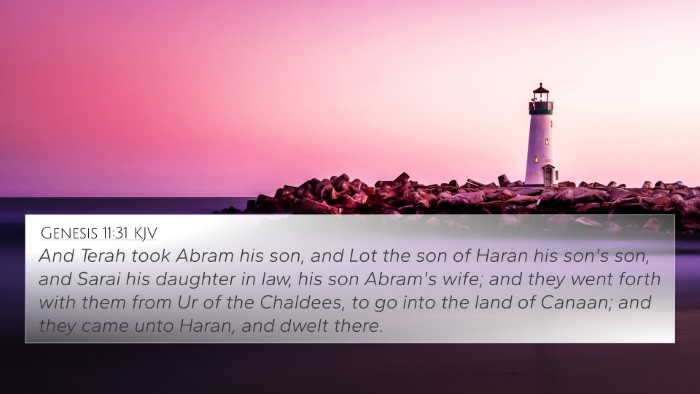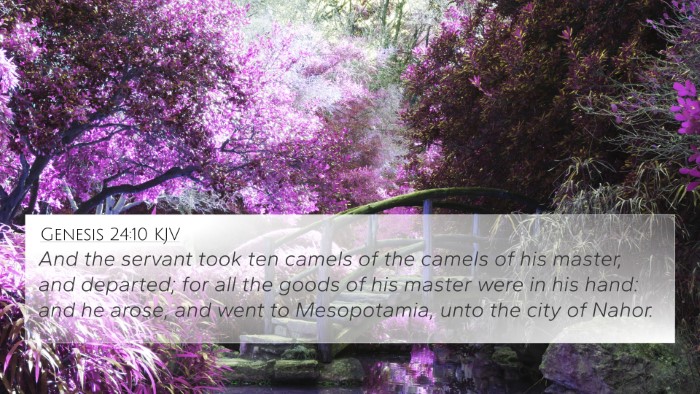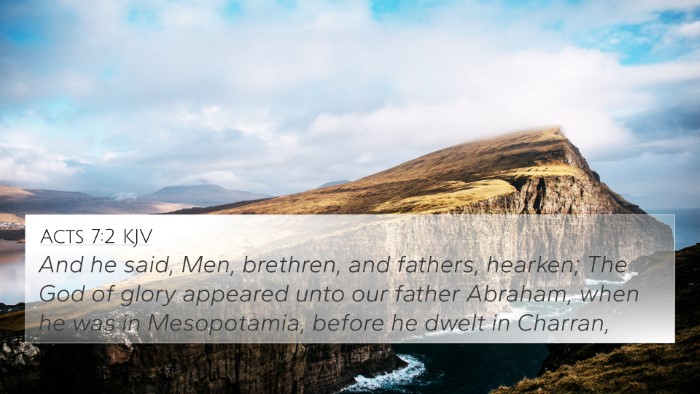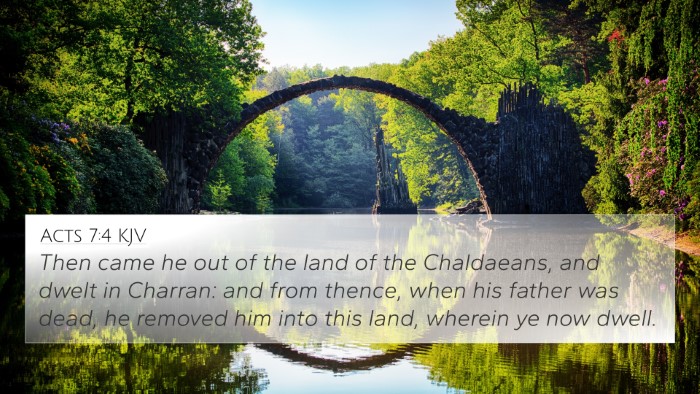Understanding Genesis 29:4
Verse: Genesis 29:4 - "And Jacob said unto them, My brethren, whence be ye? And they said, Of Haran are we."
Overview of the Verse
The verse captures the initial encounter of Jacob with the shepherds at a well in Haran, the place where his family originated. This moment is significant as it sets the stage for Jacob's journey and interactions in the land of his forefathers.
Commentary Insights
Matthew Henry's Commentary:
Matthew Henry notes that Jacob, having just left his home and being in a foreign land, seeks information about the area and the people he encounters. His inquiry indicates his desire to connect with his roots and gain guidance as he embarks on this new chapter in his life. This initial question reveals Jacob's character as someone who values relationships and community.
Albert Barnes' Notes:
Albert Barnes emphasizes the significance of Jacob's question about the identity of the shepherds. By asking, “Whence be ye?” Jacob expresses his purpose and need for direction. It is also a reflection of the importance of knowing one’s lineage and origin, particularly in the context of the patriarchal narratives found in Genesis. Barnes highlights that Jacob is not just finding out their location but also reestablishing his connection to his ancestral home.
Adam Clarke's Commentary:
Adam Clarke elaborates on the setting of the well in Haran, noting that wells symbolize nourishment and the giving of life. He posits that this encounter at the well represents the beginning of significant relationships in Jacob’s life, including his future marriage to Rachel. Clarke suggests that Jacob’s question might also reflect a deeper spiritual inquiry about his path and purpose.
Thematic Connections
This verse serves as a thematic touchpoint that can be cross-referenced with several other Bible verses:
- Genesis 24:14 - The story of Abraham's servant finding a wife for Isaac at a well emphasizes the significance of wells in drawing connections and starting relationships.
- Genesis 28:12 - Jacob's dream of a ladder reaching to heaven highlights his divine connection and purpose, which he will continue to explore in Haran.
- Genesis 31:3 - The Lord’s command to Jacob to return to his homeland furthers the theme of familial ties and obedience to divine direction.
- Exodus 2:15-19 - The story of Moses meeting Zipporah at a well echoes the notion of finding companionship and destiny in similar settings.
- John 4:7 - Jesus’ encounter with the Samaritan woman at the well illustrates the transformative nature of meetings at wells, akin to Jacob's encounter.
- Matthew 1:2-16 - The genealogy of Jesus shows the importance of lineage and the confirmation of one’s heritage, linking back to Jacob’s roots.
- Acts 2:39 - The promise of salvation extending to you and your children calls to mind the generational blessings Jacob imagines from his heritage.
Cross-Referencing Insights
The practice of cross-referencing biblical texts enhances our understanding of scripture by illuminating connections and themes that may not be immediately obvious. In exploring Genesis 29:4, we uncover layers of meaning that resonate throughout the Bible, reflecting God's overarching plan and Jacob's place within it.
Importance of Cross-Referencing
Cross-referencing Bible verses enriches our study and interpretation. It provides a broader context and allows us to see how various passages interact and support one another. This verse not only introduces us to Jacob's journey but also aligns with themes of family, destiny, and divine guidance found throughout the scriptures.
Conclusion
Genesis 29:4 serves as a critical junction in the narrative of Jacob. Through careful study and the application of tools for bible cross-referencing, we explore the profound implications of his interactions and the seeds of his future that germinate from this moment. The insights drawn from public domain commentaries complement our understanding and reveal the rich tapestry of biblical text that continues to inform and inspire believers today.
